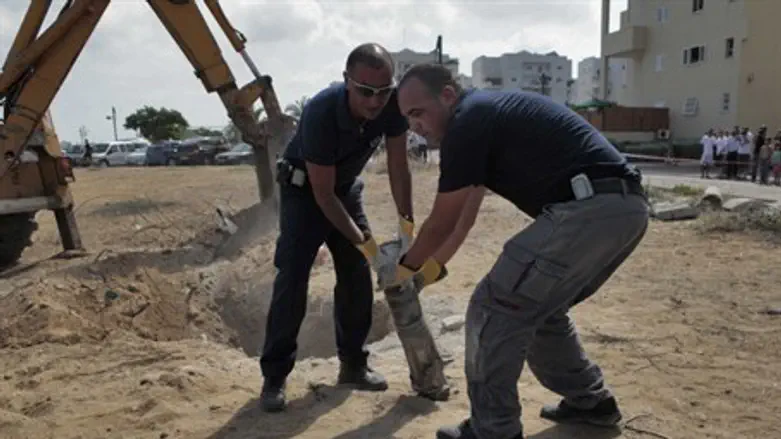
US Ambassador Dan Shapiro sought to quell Israeli fears over an emerging deal with Iran, vowing that Washington would never let Tehran acquire a nuclear weapon.
"On this crucial issue the US and Israel share an identical agenda," Shapiro told delegates attending the General Assembly of the Jewish Federations of North America in Jerusalem on Monday.
"Obama has made it crystal clear that he will not permit Iran to acquire a nuclear weapon period, and is prepared to use all elements of our national power to ensure that we are successful," he said.
His remarks were made as the US and Israel were locked in an escalating war of words over negotiations between world powers and Iran in a bid to halt its nuclear program, which is widely believed to be a front for developing a military capability.
Diplomats have said they are closing in on an interim agreement that would freeze or curb some of Iran's nuclear activities for as long as six months in exchange for an easing of the tight sanctions on the Islamic republic, after failing to secure a deal at weekend crunch talks in Geneva.
In recent days, Israel's Prime Minister Binyamin Netanyahu has furiously denounced the emerging agreement as "dangerous" reaching out to world leaders and to the American public to get his point across.
"Iran gives practically nothing and it gets a hell of a lot. That's not a good deal," Netanyahu told CBS on Sunday.
Speaking at the JNFA's assembly last night, the Prime Minister reiterated those sentiments.
"It's a bad and dangerous deal that deals with the thing that affects our survival," he declared. "And when it comes to the question of Jewish survival and the survival of the Jewish state, I will not be silenced."
But US Secretary of State John Kerry, who took part in the Geneva talks, rejected Netanyahu's remarks, saying Washington has the interests of ally Israel at heart and that he shares Netanyahu's "deep concerns".
"But I believe the prime minister needs to recognize that no agreement has been reached about the endgame here that's the subject of the negotiations," he said.
In an interview with NBC's Meet the Press, Kerry responded to criticism over his country's perceived weakness in handling negotiations, saying that "We are not blind, and I don't think we're stupid."
And some modest progress does seem to have been made on Monday, as Iran and the UN appeared to have reached an agreement regarding expanded monitoring of Iran's nuclear program.
Under the deal - the outcome of talks between International Atomic Energy Agency (IAEA) head Yukiya Amano, and Iranian nuclear chief, Ali Akbar Salehi - the sides agreed to a "roadmap'' that will give UN inspectors broader access to nuclear sites, including the heavy water reactor under construction at Arak, and a key uranium mine.
Continued nuclear enrichment at the Arak reactor has been a key concern of western states, including France, whose Foreign Minister drew Iranian ire for blocking an early draft of a deal with Tehran which critics said would have left Iran's enrichment program intact.
Meanwhile, a delegation of US officials headed by chief negotiator Wendy Sherman visited Israel on Sunday to brief officials on the Geneva talks.
Maariv newspaper reported that a senior unnamed US official told Israeli reporters that the proposed sanctions relief would be "modest" could be "revoked."
The official said that intensifying sanctions would "cause the Iranians to leave the negotiating table and accelerate their nuclear program," according to Maariv.
Israel's Economy Minister Naftali Bennett is to travel to the United States on Tuesday, with part of his trip focusing on meetings with senators and members of the US Congress over the issue.
Israel views a nuclear Iran as an existential threat and has said it will not be "bound" by any world deal with Tehran, refusing to rule out the threat of military action to halt it.
